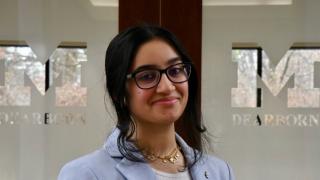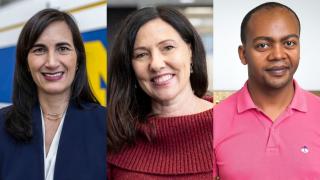Students interested in healthcare want to learn about the body’s nutritional needs. Business students, thinking of the global economy, say it’s beneficial to learn food’s cultural aspects. Social justice-focused students know the importance of increasing access to food — but need the skills to critically evaluate the food systems already in place.
With an increasing interest for a food-focused education, Associate Professor Patrick Beauchesne helped create the 12-credit Food Studies Certificate. The customizable program, which launches this fall, has courses that explore food politics and policies, nutrition and metabolism, medical anthropology, the social importance of food, and more.
“People have deep cultural ties with food. In this certificate we’ll explore how food shapes and maintains identity, which is important in everyday life and in many career fields. For example, pre-med students want to know the science of food along with the cultural aspects since they will be treating a diverse group of people and food is tied to our health and our culture,” said Beauchesne, the Food Studies Certificate director.
The Food Studies Certificate is one of five new College of Arts, Sciences, & Letters certificate programs starting this fall. Other programs focus on translation skills, media production, and cultural competency.
CASL Dean Martin Hershock said certificate programs are beneficial because they give a specialized education in a short period of time. And that campus certificate programs — CASL now has 14 — are often developed to address a need for credentialed expertise or in response to an emerging area of study or interest.
Hershock said certificate programs are created with flexibility so undergraduate students can add a certificate onto their existing major, or a professional can come to campus as a guest student with the goal of earning the certificate.
“Offering a wide range of certificate options better enables students to personalize their education in ways that address their specific needs,” Hershock said.




